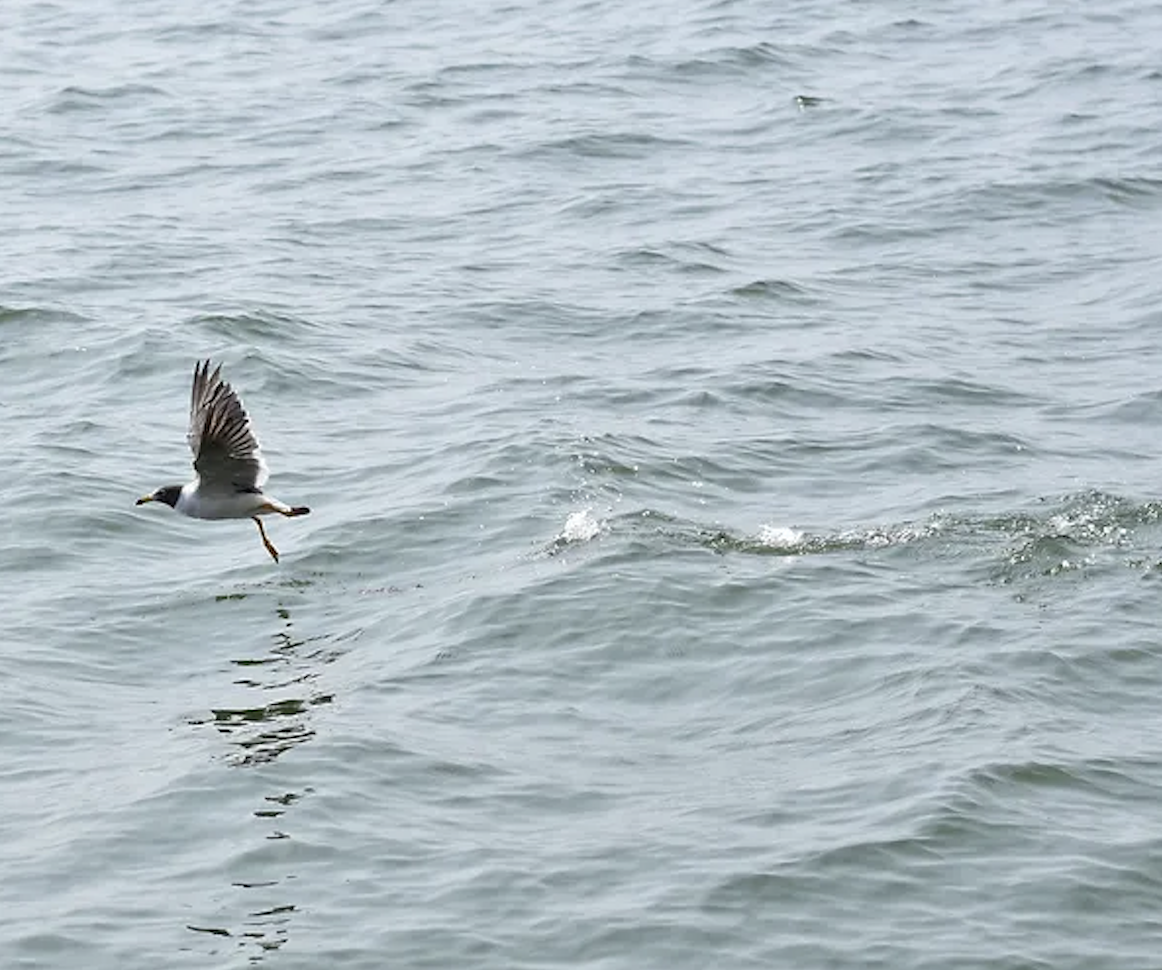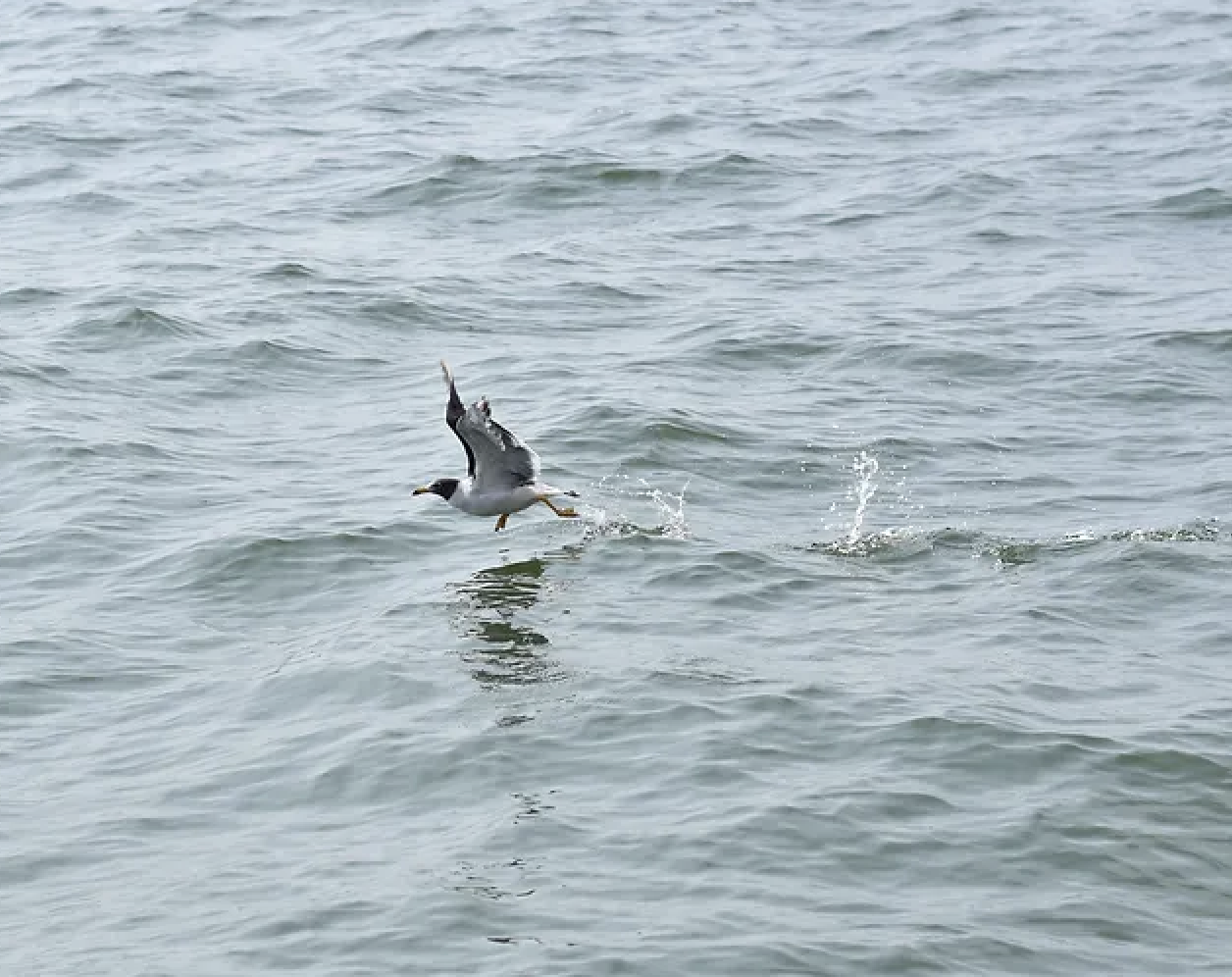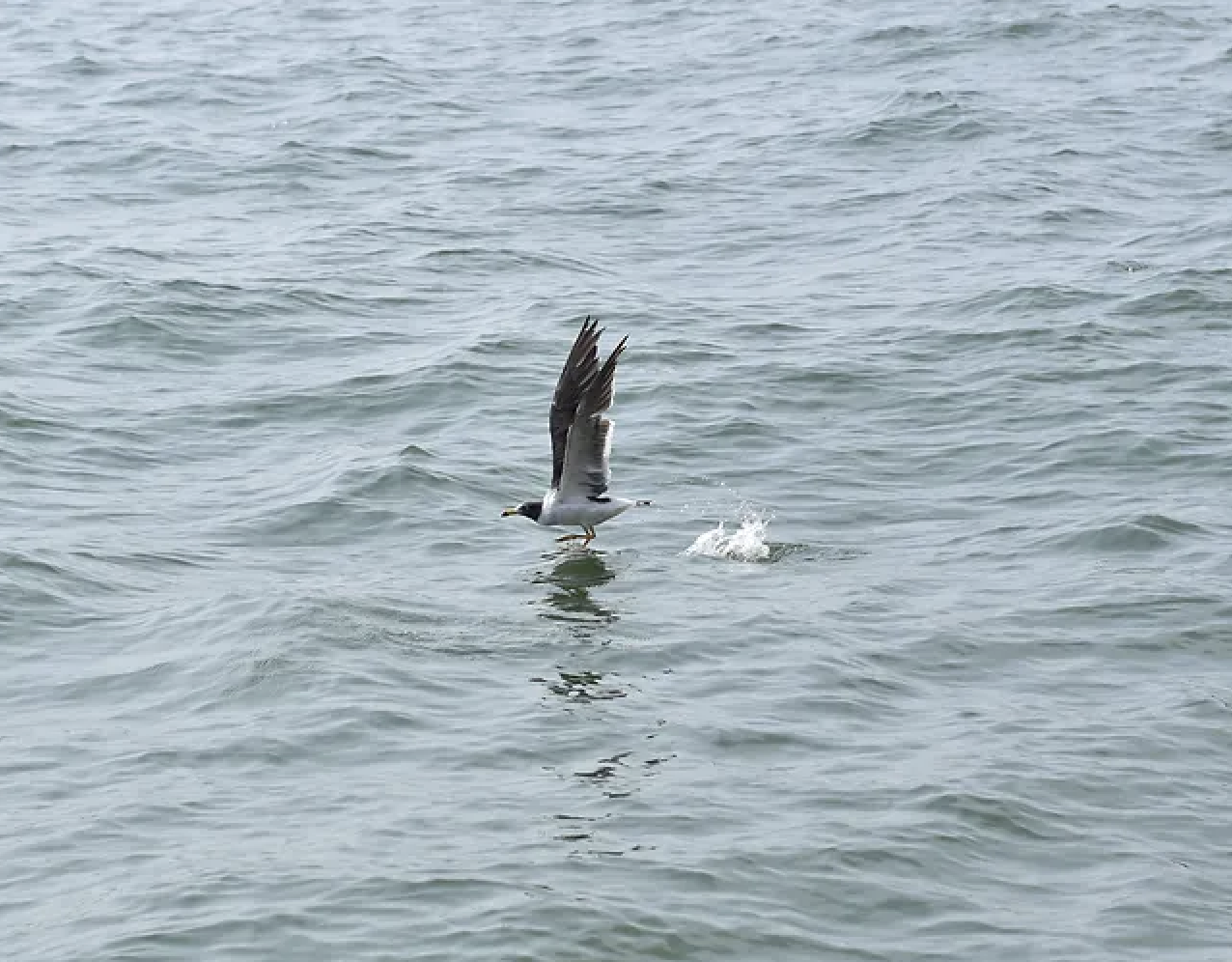Journey into The Pacific Ocean
Sail next to the rocky precipices that form the Peruvian coast and get lost in the depth of the cold, vast Pacific Ocean, joining the wildlife that seems more civilized than what waits back on shore. As a writer born and raised in Peru, I had the privilege of growing up visiting places off the Peruvian coast, such as Santa Maria, the evocative character of this essay. Get a taste of Peru’s natural beauty and the transient peace and bliss it brings when away from our society, where crowded and busy streets hold political and social issues within them.
With a swift push, you are drifting away from the buoy that held you steady as you floated along with the tide; the engine murmurs, taking you farther into the Pacific Ocean. Looking out, you see a horizon line that separates the sea from the sky.
After a while, your sense of depth and distance fails as you seem nowhere closer to the horizon than you did at the start of the journey. The place you sailed away from turns into a vague contour of land. And far from it, in the Pacific Ocean off the coast of Peru, a sense of belonging and calm overwhelms you.
Besides the endless dark green water, the coast is shaped by tall mountains. They seem to have been sliced, leaving their core exposed, creating a rocky precipice that feels like the end of the world.
The textured rock core forms faces and shapes; one is said to resemble the face of Jesus. Most of those who have sailed past have recognized how the concave sections are eyes, and the protruding portions make a nose, mouth, and beard.
But you might be like me and miss it each time, even when guiding fingers point out the features growing desperate with your failed attempts to discern God from the rest of the beige-toned mountain.
The wind combs your hair back, brushing it out of your face. Salt marks its path. You feel weightless as you ride the ocean's surface, jumping at its command. It tempts you to play along as you navigate it.
Sometimes it will invite itself onboard with droplets that ask you to join its game. I have considered allowing myself to do so. Let myself fall into the ocean, joining those that call it home, maybe calling it home myself. But when you look in before jumping, it's easy to get lost in the ocean's vastness. If you think about it too much, you won't let yourself go. The darkness feels unknown, and the cold uninviting.
With instant regret, you will take a step back and remain on board. There, the sun combats the wind. Its rays are almost tangible as if the heat is reaching out to hug your shoulders, turning kept colorless skin red.
A bird shoots down from the sky, crashing into the sea and disappearing beneath it. Its drop is filled with precision. There is no fear or hesitation. For a couple of seconds, he's done it. He has left our world and joined that of the ocean.
Then he lifts back up, a small fish held in his beak. It is nothing more than routine for him: fly, swim, catch, eat, then join his flock. They play with the wind as if it were a dance, floating and cutting through it with extended wings, following their kind through the sky.
They are unaware their bodies create art for those around them. One by one, they drop like meteorites back into the sea, and there is no doubt they will later return to the surface and to their own. They are part of a whole. As you continue to sail, venturing deeper into their world, you question your certainty of returning to land.
You reach a rock that stands on its own. Its crumbling edges are bathed by the dark emerald water, and from it, the brown head of a sea lion with its long whiskers and snout will emerge.
You will spot his thick skin as it peeks out and travels like a needle threading the ocean. He will swim around the rock, inviting you to follow behind him. On the other side, you will discover at least ten of his kind soaking in the sun. He, too, is part of a whole.
If you turn your head to look back, you will see a path marked by the boat's wake that leads to solid ground. You feel how crowded and busy the streets are.
Women clutch their purses so they aren't ripped away. Drivers scream and honk, cutting each other off, ready to reach their destination, doing whatever it takes to do so. Children and their parents beg in the streets, selling candy and offering to clean luxury cars for change.
If given a choice, I would settle in with the sea lions, although I wouldn't want to turn their civilized home into one as wild as mine.
Like most of what nature gifts us, the fleeting moment of a crashing wave is constant and unexpected. They're shaped and nurtured by wind, tides, and currents that give them the strength to travel to shore, where they explode with a roar and then retreat to begin their journey once more. As you turn back for the final time, cold drops land on your sun-kissed skin–a last attempt from the waves to invite you to stay.
ABOUT THE AUTHOR
Rafaella Mufarech is a writer from Lima, Peru. She is a member of Project Synergy and currently studies Writing, minoring in Business and Dramatic Writing at the Savannah College of Art and Design. She fell in love with writing because it helps people empathize with each other, process life, connect with their feelings, and escape them too.
Find more of her work at https://rafaellamufarech.wixsite.com/rafmp.









